Life
Sign up for our newsletter
We summarize the week's scientific breakthroughs every Thursday.
-
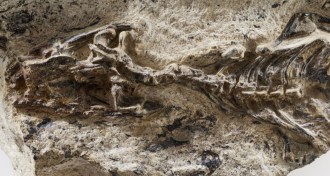 Paleontology
PaleontologyOldest known lizard fossil pushes group’s origins back 75 million years
CT scan reveals hidden identity of an unusual lizard fossil found years ago in the Italian Alps.
By Susan Milius -
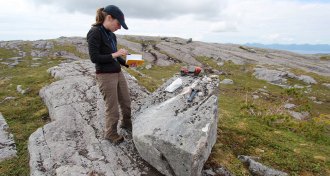 Climate
ClimateThe first Americans could have taken a coastal route into the New World
Alaskan glaciers retreated in time for ancient coastal entries of the first Americans.
By Bruce Bower -
 Science & Society
Science & SocietyThe power of great editors, their lessons and legacy
Editor in Chief Nancy Shute reflects on the history and legacy of Science News editors.
By Nancy Shute -
 Science & Society
Science & SocietyReaders respond to pesticides, Hawking radiation and more
Readers had questions about pesticides, Hawking radiation and the intersection of science and the public.
-
 Genetics
GeneticsThe history of heredity makes for a fascinating, and chilling, read
From eugenics to gene editing, Carl Zimmer’s She Has Her Mother’s Laugh recounts genetics’ biggest discoveries.
-
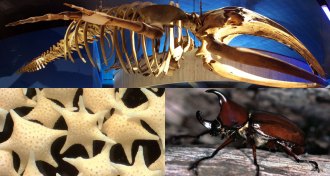 Life
LifeSkeletons come in many shapes and sizes
In Skeletons, two paleobiologists recount how and why skeletons evolved, as well as the variety of forms they take and the many purposes they serve.
By Sid Perkins -
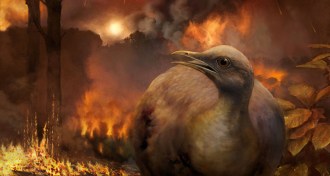 Paleontology
PaleontologyHow birds may have escaped the dino-killing asteroid impact
A tree-loving lifestyle became a risk for ancient birds in a world-changing catastrophe.
By Susan Milius -
 Paleontology
PaleontologyThe Chicxulub asteroid impact might have set off 100,000 years of global warming
About 66 million years ago, the Chicxulub asteroid impact set off 100,000 years of global warming, an analysis of oxygen in fish fossils suggests.
-
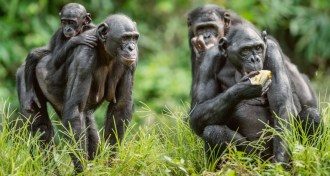 Animals
AnimalsPregnant bonobos get a little delivery help from their friends
As in humans, female bonobos become helpers for mothers giving birth, data from captive apes suggest.
By Bruce Bower -
 Genetics
GeneticsGenetic sleuthing again IDs a murder suspect in a cold case
The arrest of a second murder suspect with the help of genetic genealogy raises worries that suspicionless searches may be next.
-
 Genetics
GeneticsConsumer DNA testing promises more than it delivers
Chances are your DNA doesn’t contain dark secrets. But there may be lots of variety in results from testing company to company.
-
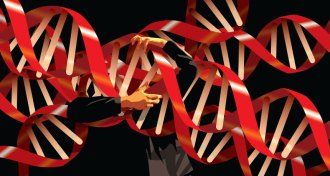 Genetics
GeneticsSpecial report: Genetic testing goes mainstream
Consumer genetic tests may not tell customers that much about themselves. Science News delves into these tests in a multipart series.